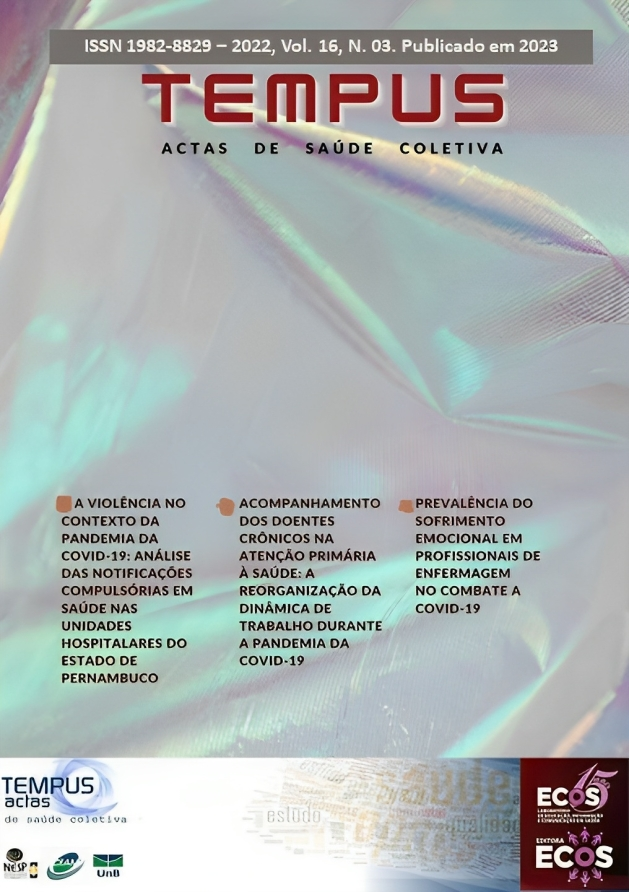Abstract
Introduction: The new coronavirus was identified in December 2019, a highly contagious virus that has spread rapidly around the world, and in March 2020 it was declared a pandemic by the World Health Organization. 210,147,125 inhabitants, 5,323,656 cases and 156,471 deaths were confirmed. Objective: To understand the difficulties that primary health care professionals face in monitoring patients with chronic disease during the COVID-19 pandemic. Method: This is a study with a qualitative approach, exploratory-descriptive type, through semi-structured interviews, with 28 health professionals from five Basic Health Units in the city of Santa Catarina, Brazil, the data collection period was in July 2021 and data analysis was through Bardin's Content Analysis. Results: From the analysis, three categories emerged: "The pre-pandemic scenario", "The impact of coping with COVID-19", "Adapting to new routines" Conclusion: During the pandemic, the Basic Health Units reorganized their health care services. in order to give priority to patients with symptoms of COVID-19. It was evident in the study, the lack of monitoring of people with chronic conditions during this period and the ability of the teams to adapt to such a difficult time. Descriptors: Primary Health Care, Chronic Disease, Hypertension, Diabetes Mellitus, Coronavirus Infections, COVID-19.
A Tempus garante critérios rigorosos, por meio de avaliação sistemática. Os autores se responsabilizam pela veracidade e ineditismo do trabalho cabendo a eles a cessão de direitos de publicação à revista. A confiabilidade dos conteúdos e a marca própria de apresentação tem como objetivo uma comunicação personalizada, adaptada aos padrões da revista, na medida em que adota critérios de excelência exigidos por seus usuários e especialistas, considerando os rigores da comunicação científica. Os autores devem especificar sua contribuição individual na concepção, delineamento, execução do trabalho, análise ou interpretação dos dados, redação e aprovação final do manuscrito. Incluir Fontes de financiamento e de apoio logístico das pesquisas. Ao final da submissão do artigo, os autores devem enviar uma declaração de cessão de direitos de publicação à Revista TEMPUS , assinada e no formato PDF (Portable Document Format ): Modelo da declaração de cessão de direitos.
